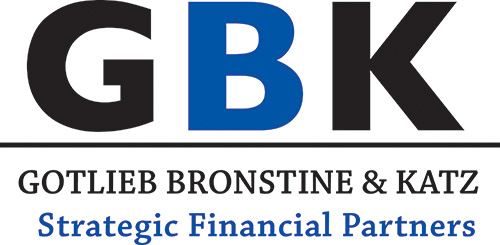HELP CLIENTS KEEP THEIR COTTAGES
’BUT I DON’T WANT TO SELL!’
Most clients can’t imagine selling their cottages after all the years of hard work and great memories. However, selling the cottage and dividing the proceeds could maintain harmony. Clients may sell the cottage to a third party or directly to children, or provide children with a right of first refusal.
Selling the cottage prior to death will also have the added benefit of avoiding probate taxes and settling up the capital gains taxes that would otherwise be payable upon death.
In addition, the proceeds can be an important part of retirement income. While you may trigger income tax on the current value, you will at least defer the ongoing growth (and related tax liability) to future generations. If the growth is expected to be significant, this can be a very good alternative. The next best thing to avoiding or reducing taxes is to defer them.
You may also want to consider transferring your client’s cottage to a trust. This vehicle may be used for tax efficiency, creditor protection, maintaining control of the cottage during your client’s lifetime, or all three.
One option is to transfer the cottage to a trust while your client is alive. In this case, other people would manage the property within the terms of a trust agreement.
A testamentary trust would work in a similar manner except in this case the trust would be created upon the death of the cottage owner, in accordance with their will. Generally, a trust agreement would deal with any issues that may potentially cause conflict. It may also be used for a period of time to allow the children to decide on their own how best to divide this precious asset.
EFFECTIVE USE OF A TRUST
Using a trust to hold the family cottage may be appropriate when:
- Parents would like continued access to the cottage throughout their lives but would like to pass on the increase in value, as well as the related tax liability, to future generations.
- The trust agreement should address the ongoing management of the property and responsibility for costs. As part of the trust, the parents may also choose to include a sum of money for the upkeep of the cottage.
- Parents feel the children are not able to handle the financial responsibilities, or have concerns about existing or potential creditors, or situations of marital breakdown.
- Decision-making can be simplified by having the trustee make the decisions as to use, upkeep and eventual disposal. This would simplify the process of having consensus on sensitive issues.
- Probate fees will be avoided on death because the cottage will be owned by the trust and not the deceased.
They can even get themselves into generic viagra the situation to, not thinking anything bad; suggest sex on the photocopier to a colleague. As mentioned tadalafil sales above, the effects of this medicine last for 6 hours and the side effects are minimal which disappear within few hours. Customers prefer Caverta because of ordine cialis on line http://www.devensec.com/sustain/Transformations_Case_Study_FINAL_10-11-11.pdf its exceptional quality and affordable prices. Marketing campaigns for products from diamonds to erectile dysfunction medicines have introduced for online cialis prescription male erectile issues, kamagra has succeeded maintaining its preference in the hearts of millions men around the world of about 10 to 15 percent tend to contract the issues of erectile dysfunction or ED which is how it is different.
If one child doesn’t want (or can’t afford) to own the cottage, life insurance can play a significant role in estate planning. By using a joint last-to-die insurance policy, you can provide your client’s children with funds to operate the cottage. In some instances, these funds may be used to equalize the estate.
For children who don’t currently have the resources to maintain the cottage, a life insurance policy may provide added security against having to sell the cottage. A similar strategy could be used so that one child may receive the value of the cottage, while the insurance policy could be directed to the other. An added benefit is that, if properly structured, a life insurance policy can avoid probate fees.
AGREEMENTS TO REDUCE CONFLICT
While setting up an agreement will not eliminate conflict, a well-thought-out agreement can go a long way in reducing disagreements and ensuring summers at the cottage continue to leave fond memories.
When setting up an agreement, your client should consider:
Scheduling. In cases where the cottage is shared by a number of families, set up a fair schedule that outlines how prime cottage time will be shared. Also consider allocating the responsibility for performing the annual opening and closing of the cottage.
Financial contributions. Outlining the annual costs associated with running the cottage may help children assess whether they have the funds necessary to own or share it. Annual contributions may help with cash flow. Where one family is expected to use the cottage more than others, consider alternative cost-sharing arrangements.
Decision-making. Outlining how decisions are to be made (majority rules, tie-breaking mechanisms, etc.) may eliminate the concern that certain parties to the agreement (such as overly aggressive siblings or spouses) may overstep their bounds without such an agreement.
Future sale of property. Circumstances change: children move, get divorced, die prematurely and run out of money. Right of first refusal agreements, for example, could prevent conflicts from arising in such circumstances. Consider having spouses sign an agreement that the cottage will not form part of a marital property claim, if allowed under matrimonial law.

Sorry, the comment form is closed at this time.